Care for our common home requires action, innovation, and a commitment to elevating the best ideas from every field, no matter who has them. But these ideals are applicable to more than environmental stewardship. As we pursue an end to the pandemic, we seek a world that incorporates sustainability in every sense of the word, in every aspect of society. Meet seven Notre Dame women who are helping to create such a world through their research, scholarship, and creative endeavors.
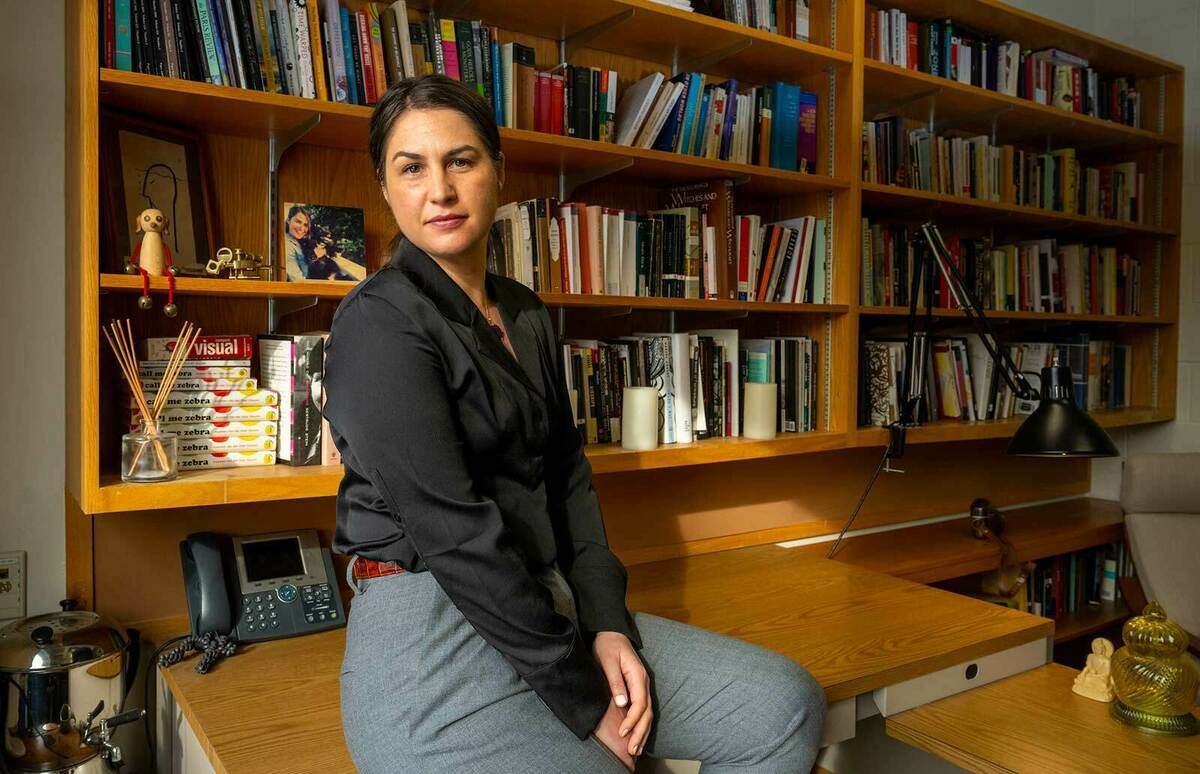
Stories That Shape Identity
Azareen Van der Vliet Oloomi
College of Arts and Letters
“It requires a lot of courage to show up every day for the writing. The page is like a mirror — you have to constantly examine yourself.”
On the pages of her novels, Azareen Van der Vliet Oloomi creates female characters who insist on being themselves. That’s something the award-winning writer and Notre Dame faculty member knows quite a bit about.
Growing up in Iran — a country where laws restricted her mobility because of her gender — she loved marching by herself through a deep eucalyptus forest to go to the beach on the Caspian Sea.
“I have a very adventurous spirit,” said Van der Vliet Oloomi, an associate professor of English and the MFA in Creative Writing Program. “I write female characters who are equally themselves. They insist on being who they are in the world.”
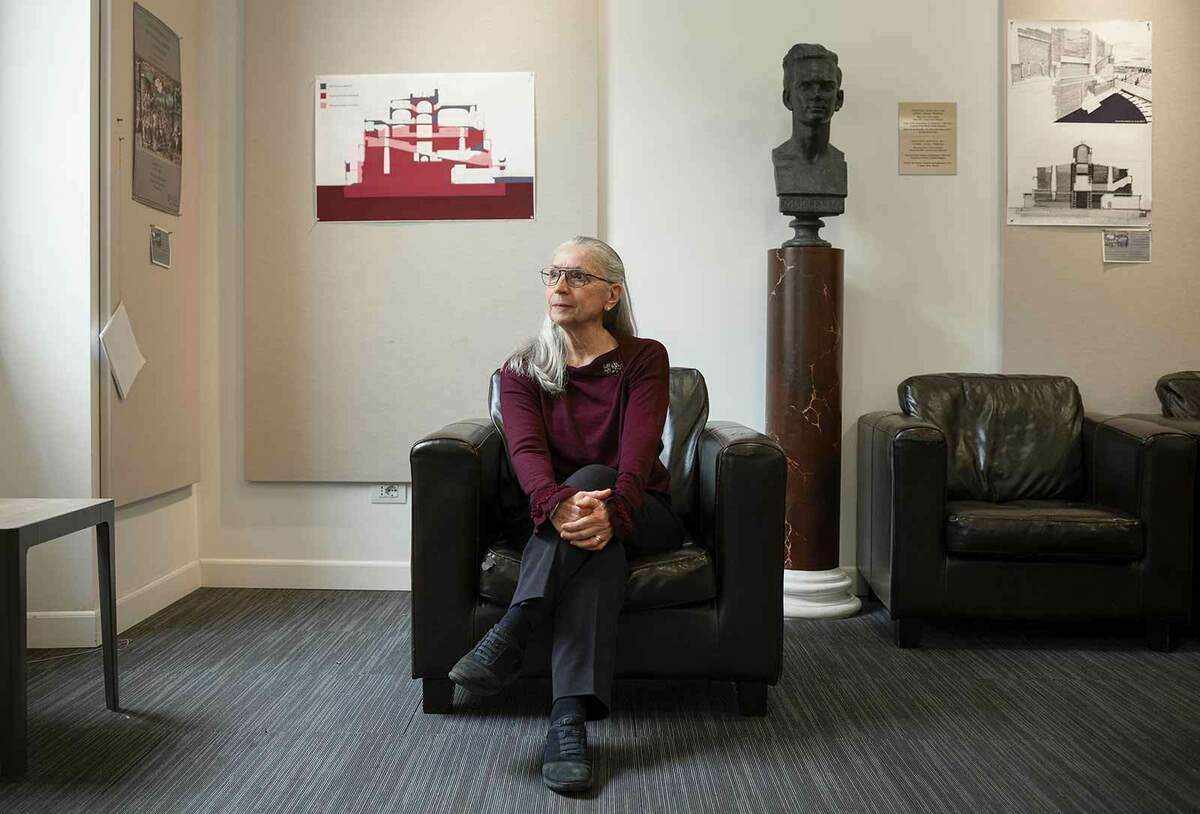
Speaking the Language
Giovanna Lenzi-Sandusky
School of Architecture
“Many people have now [because of the pandemic] pulled back and have realized that maybe it’s okay to live a simpler life and have fewer things, and think of a better future, how to fix things and make things better for everyone.”
“Where are you from?”
Most of us answer this question in a few words, referencing proximity to a major city or well-known region in which we spent the majority of our early lives.
For Giovanna Lenzi-Sandusky, the answer is a bit more complicated. The onetime winner of the University’s Kaneb Teaching Award for excellence in undergraduate teaching is the daughter of an Italian diplomat, and spent her early years moving to various far-flung locations where her father was stationed: Iran, Pakistan, Greece and Japan, to name a few.
Still, Lenzi-Sandusky has an unmistakable cultural identity, even if confirmation of the fact came a bit later in life.
“Italian to the core,” she says.

Getting from A to B
Kaitlin Wowak
Mendoza College of Business
“Having more perspectives helps everybody succeed. Whether it’s sustainability or just enhanced performance over time, it just makes people more well-rounded. Gender equality can make everyone more successful tomorrow.”
Two years ago, discussion of the supply chain was mostly reserved for business classes or corporate boardrooms. But as cracks in the system revealed in the spring of 2020 grew into full-blown canyons by the fall of 2021, supply chain became a household term. It’s a newfound fame (or infamy) that has vaulted supply chain management to a sort of topical celebrity status, with a renewed interest even where the field was commonly discussed.
“I don’t think a lot of people knew what supply chain management was before,” says Kaitlin Wowak, associate professor of IT, analytics and operations. “In class, I used to have to sell students on the importance of the supply chain. Now, I don’t have to.”
It also means that Wowak, an expert in strategic supply chain management, is more in-demand than ever, fielding requests for media interviews and presentations with all the efficiency of a major distribution center.
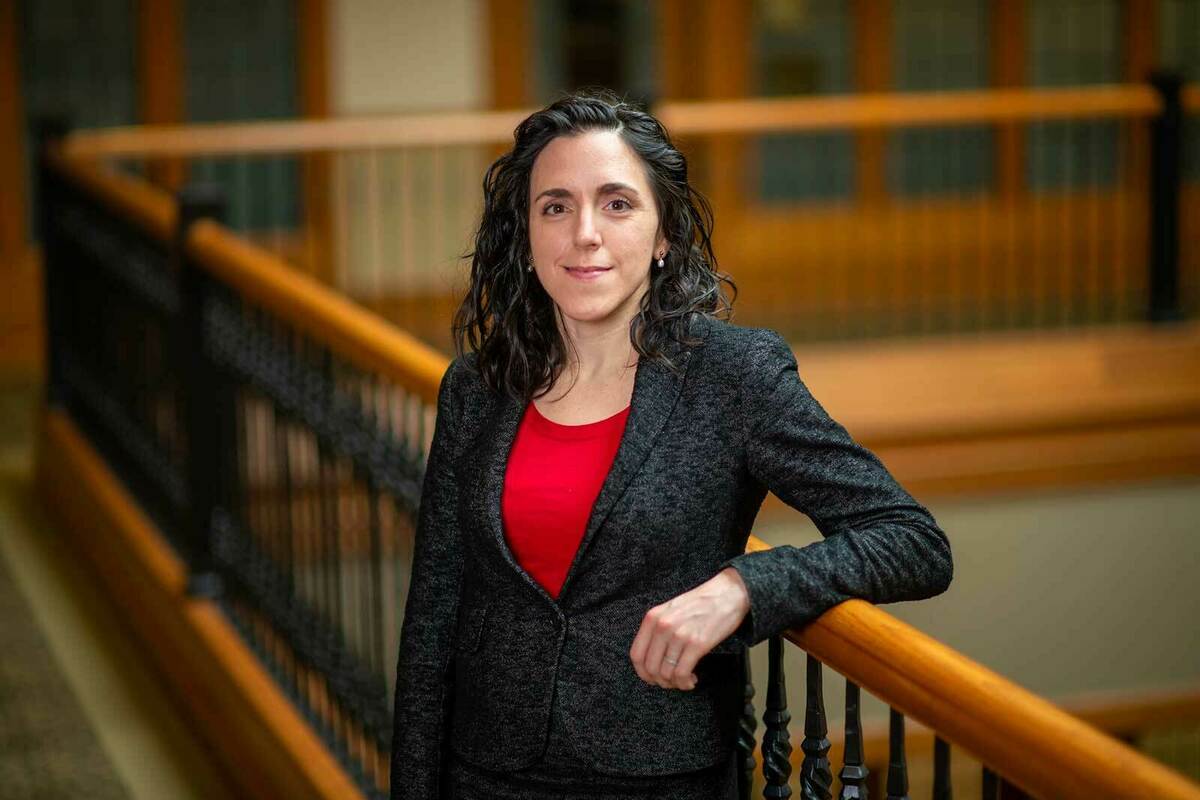
A Measure of Justice
Maria Maciá
The Law School
“Laws can sound really great in theory, but they are a work in progress, and it is important to know how they are playing out on the ground.”
Professor Maria Maciá is trained as a lawyer and an economist. Her research uses empirical evidence — statistical analysis and other substantiating support — to determine how laws intended to align corporate actions with social welfare are working. Those conclusions can then be used to help tailor corporate regulations to address better the problems they are intended to address.
Maciá received her J.D. and Ph.D. in economics from the University of Chicago. She came to Notre Dame Law School as a visiting professor during the 2019-20 academic year and became an associate professor in 2021. She now teaches law and economics, antitrust law and corporate finance classes to law students. She was led to academia rather than practicing law because she enjoys teaching these topics to law students: she believes that exposing future lawyers to economic principles will help them understand the law better and discover ways to improve it. She also wanted to contribute to policy discussions about how we should regulate corporations.
An interest in both law and economics was instilled in Maciá when she was very young. She was profoundly influenced by her father, who was 14 when he immigrated to the United States from Cuba a year before his parents could. She grew up hearing stories of what life was like in Cuba and the impact of Fidel Castro’s policies on his family.
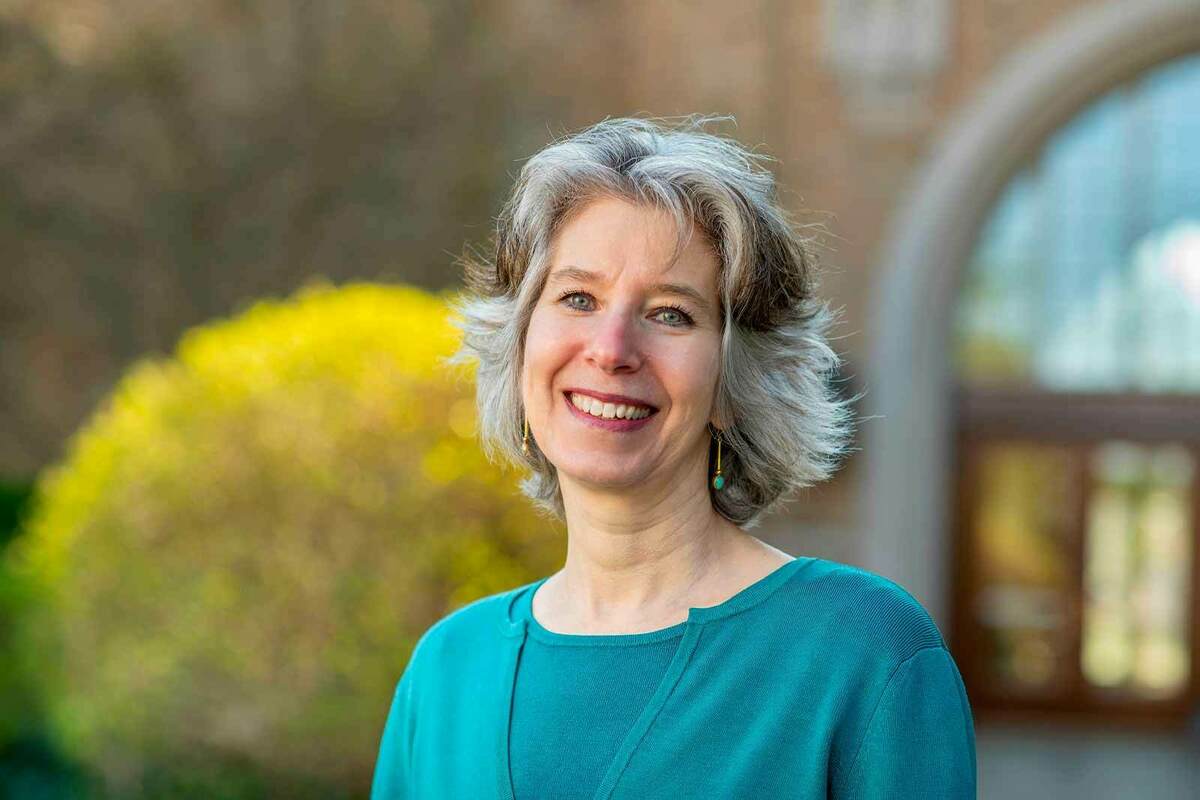
Gene Drive
Nora Besansky
College of Science
“It’s the kind of thing where no matter how hard you work at home and how hard you work at the University, you’re going to feel like you haven’t done enough in either place.”
Nora Besanksy, now the Martin J. Gillen Professor of Biology, remembers her interview at the University of Notre Dame before she was hired in 1997.
Morris Pollard, then an emeritus professor, asked her one of the classic questions about her future goals. Describing herself now as young and naive at the time of the interview, Besansky remembers blurting out, “I want to be the best.”
Nearly 25 years later, she most likely is.
She was inducted into the National Academy of Sciences in 2020, considered a top achievement for any scientist. She runs a thriving laboratory and also inspires her students through well-organized lectures during her genetics course.
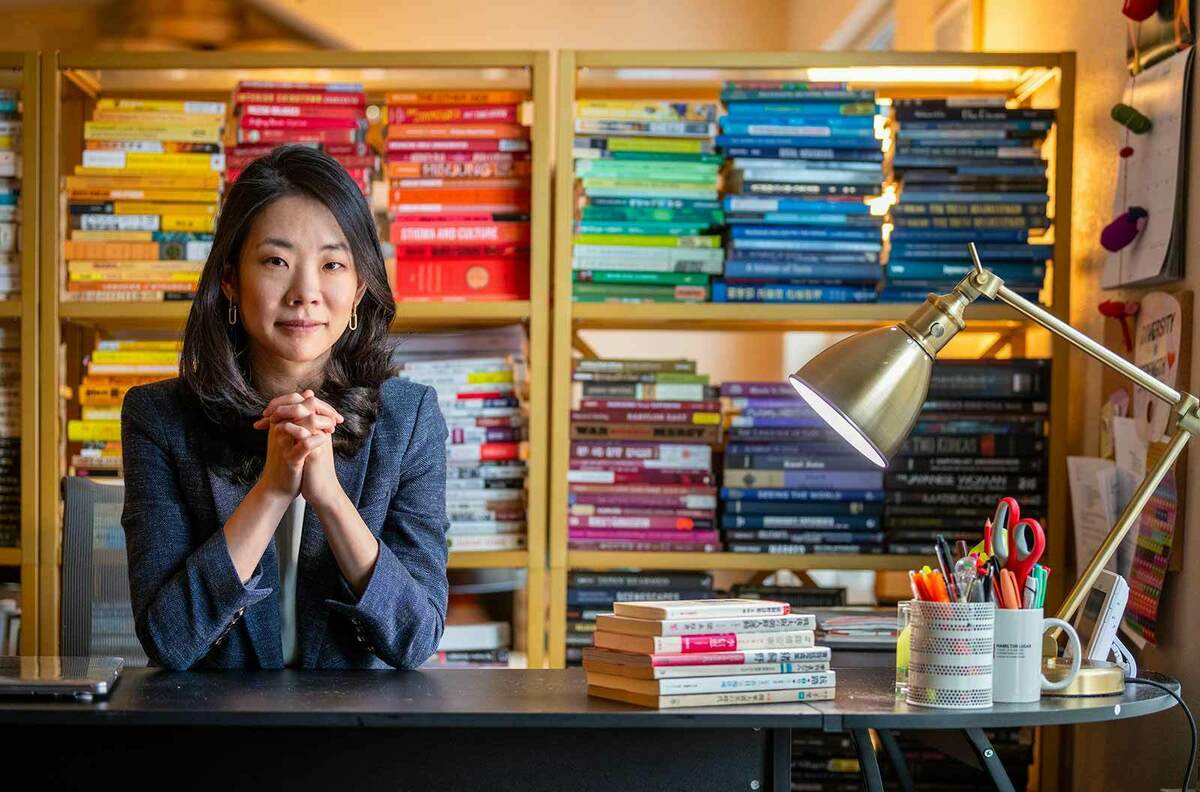
Researching Race and Community in Asia
Sharon Yoon
Keough School of Global Affairs
“My research is motivated by my own curiosity, and I’m able to form relationships with people on the other side of the world who are really suffering and help their voices be heard.”
Sharon Yoon, who came to Notre Dame in August 2020 from a faculty position at Ewha Womans University in Seoul, has produced a rich body of research that focuses on how race and identity politics function among marginalized communities, primarily those in Asia, and analyzes how people are able (or unable) to mobilize resources to advance their economic, social and political goals.
To gain these empirical insights, Yoon employs ethnographic methods to observe everyday life, and has spent several years immersed in the marginalized communities at the heart of her research. As part of the fieldwork for her first book, “The Cost of Belonging: An Ethnography of Mobility and Solidarity in Beijing’s Koreatown” (Oxford University Press), Yoon taught English to Chinese rural migrants of Korean descent at a Korean underground church, worked as a store clerk for a Korean clothing boutique, interned as an English translator for a major South Korean conglomerate and played the piano for a South Korean state-sanctioned church in Beijing.
“By observing daily interactions, ethnographers try to make sense of structural problems people face,” said Yoon, a faculty fellow in the Keough School’s Liu Institute for Asia and Asian Studies. “People discuss their problems as individual problems. Many of the South Korean entrepreneurs I met would point to their specific experiences, saying, ‘This is why I failed,’ but as an ethnographer, it is my job to shed light on how broader patterns in labor markets, migration policies and access to resources influence an individual’s ability to thrive economically, socially and politically. In Beijing, I started to see how the vast majority of South Korean migrants struggled to achieve upward mobility not because of a personal shortcoming, but structural barriers that placed them collectively at a disadvantage.”
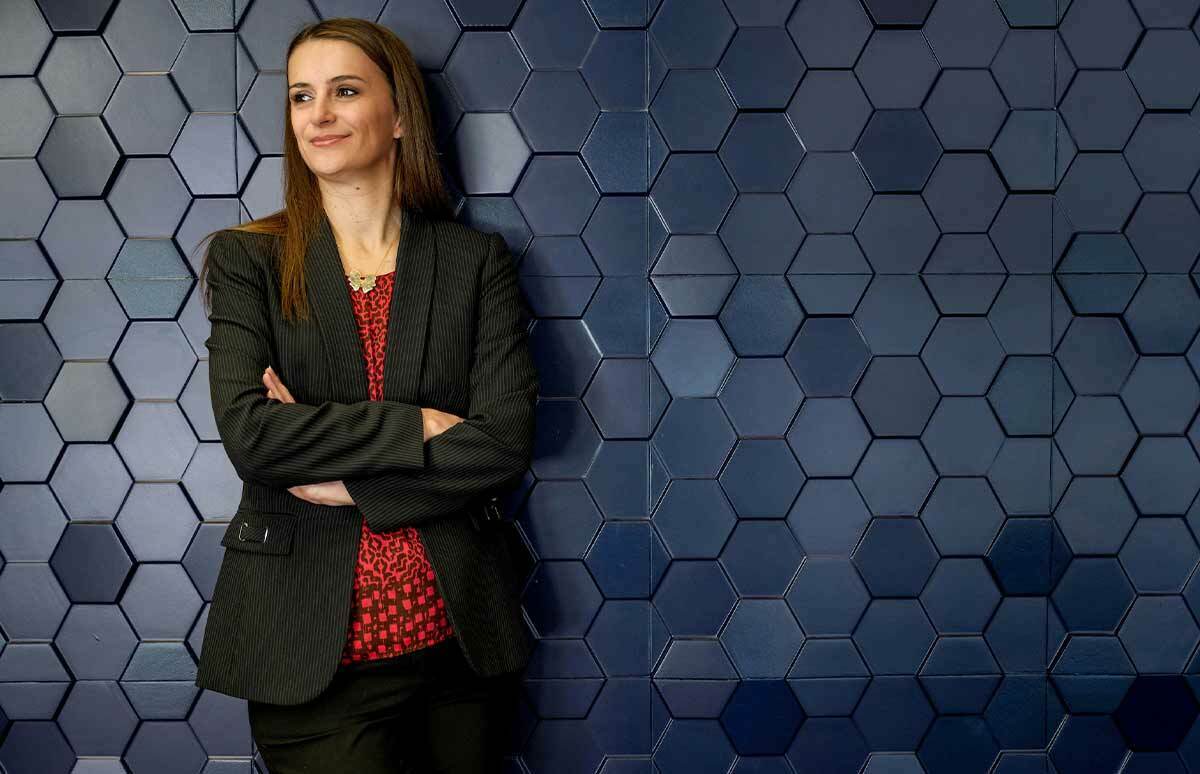
Computer Scientist’s Character Forged in Homeland War
Tijana Milenkovic
College of Engineering
“As a woman in engineering, you have to have a very thick skin. I think all of it prepared me for who I am.”
Tijana Milenkovic was in the fourth grade in Sarajevo when the war that broke apart the former country of Yugoslavia erupted in 1992.
She remembers avoiding the windows for fear of snipers and catching rainwater to take showers. Enduring a 20-mile exodus from the city that took nine hours to pass through military checkpoints. And walking two hours through woods potentially littered with hidden land mines.
Yet Milenkovic said simple meals best illustrate what her family went through.
“We were without proper foods for months,” she said. “We ate rice without any spices, and pasta without any spices. To this date for 30 years now, I cannot eat rice. I can’t. It’s just my war trauma.”
She credits those crucible experiences, along with role models like her mother, with making her stronger, equipping her to land where she is today as the Frank M. Freimann Collegiate Professor of Engineering at Notre Dame.
